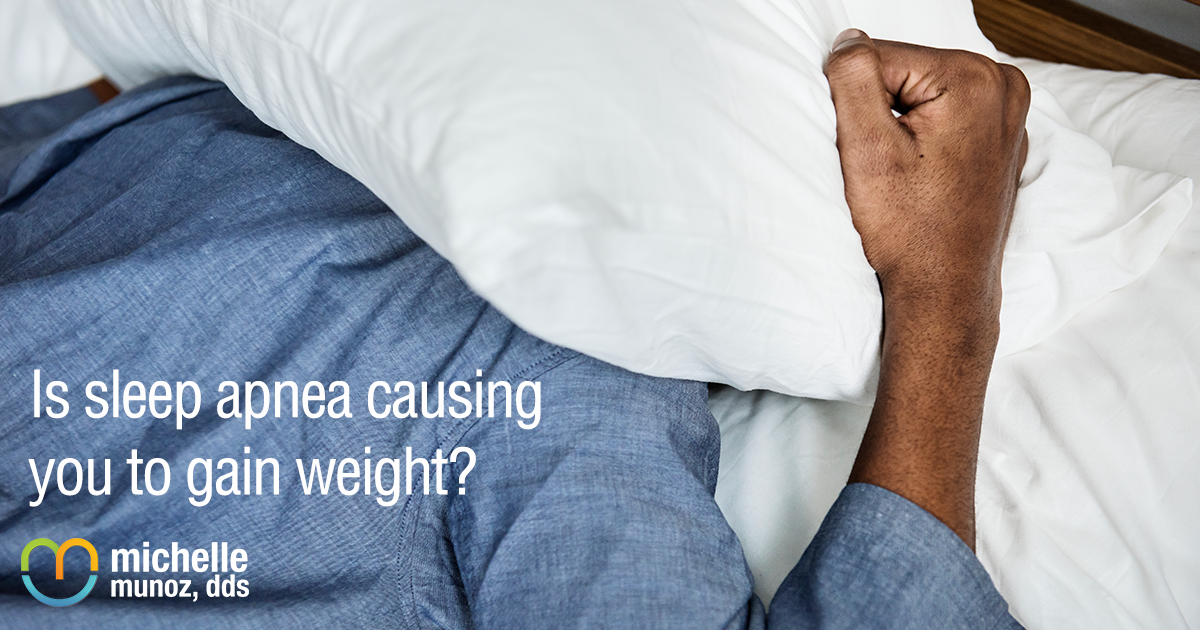You stepped on the scale for your weekly weigh-in. Yikes! The numbers on the scale are slowly creeping up and you don’t know why. You can’t think of any changes you’ve made that would cause the weight gain. What’s going on? At my practice, Southwest Texas TMJ & Sleep Therapy Center, I get to help many patients with sleep apnea. If you suffer from sleep apnea, there’s something you need to know.
A relationship exists between sleep apnea and weight gain. Sleep apnea is a serious sleep disorder that causes repeated interruptions in breathing throughout the sleep cycle. Click here to take our sleep apnea quiz.
There are two main reasons sleep apnea may cause weight gain.
- Higher Blood Sugar Levels — During apnea episodes, the body releases adrenaline to restart breathing. A spike of adrenaline in the body triggers carbohydrate metabolism resulting in higher blood sugar levels. In response to the higher blood sugar, the body releases the hormone insulin. Insulin causes the body to store the sugar as body fat for energy. While you’re sleeping, the body continually makes more. This also explains why there is a link between sleep apnea and insulin resistance.
- Hormones out of Whack Due to Lack of Sleep — When the body is sleep deprived, it throws levels of leptin and ghrelin hormones off balance. Ghrelin is a hormone that tells you when to eat. Leptin is the hormone that signals you to stop eating. Sleep apnea prevents these two hormones from working together with each other. As a result, sleep apnea sufferers make unhealthy food choices to fuel their exhausted bodies.
What Can You Do?
Treating sleep apnea is the first step to improving the quality of your sleep. You break this vicious cycle with the consistent treatment of your sleep apnea. There is potential to make the necessary changes to regain control of your weight.
How I Can Help
Customized oral appliances are FDA-approved to treat sleep apnea. Patients wear the oral appliance at night. It looks similar to mouth guards or orthodontic retainers. The appliance adjusts the positioning of the jaw to prevent airway obstruction. This allows you to sleep unrestricted. Also, it’s easy to become acclimated to the appliance after a brief period of usage.
Have you or someone you know received a sleep apnea diagnosis? To find out more about using a customized oral appliance to treat your sleep apnea, call my office to schedule an appointment.
Best,
Dr. Munoz









